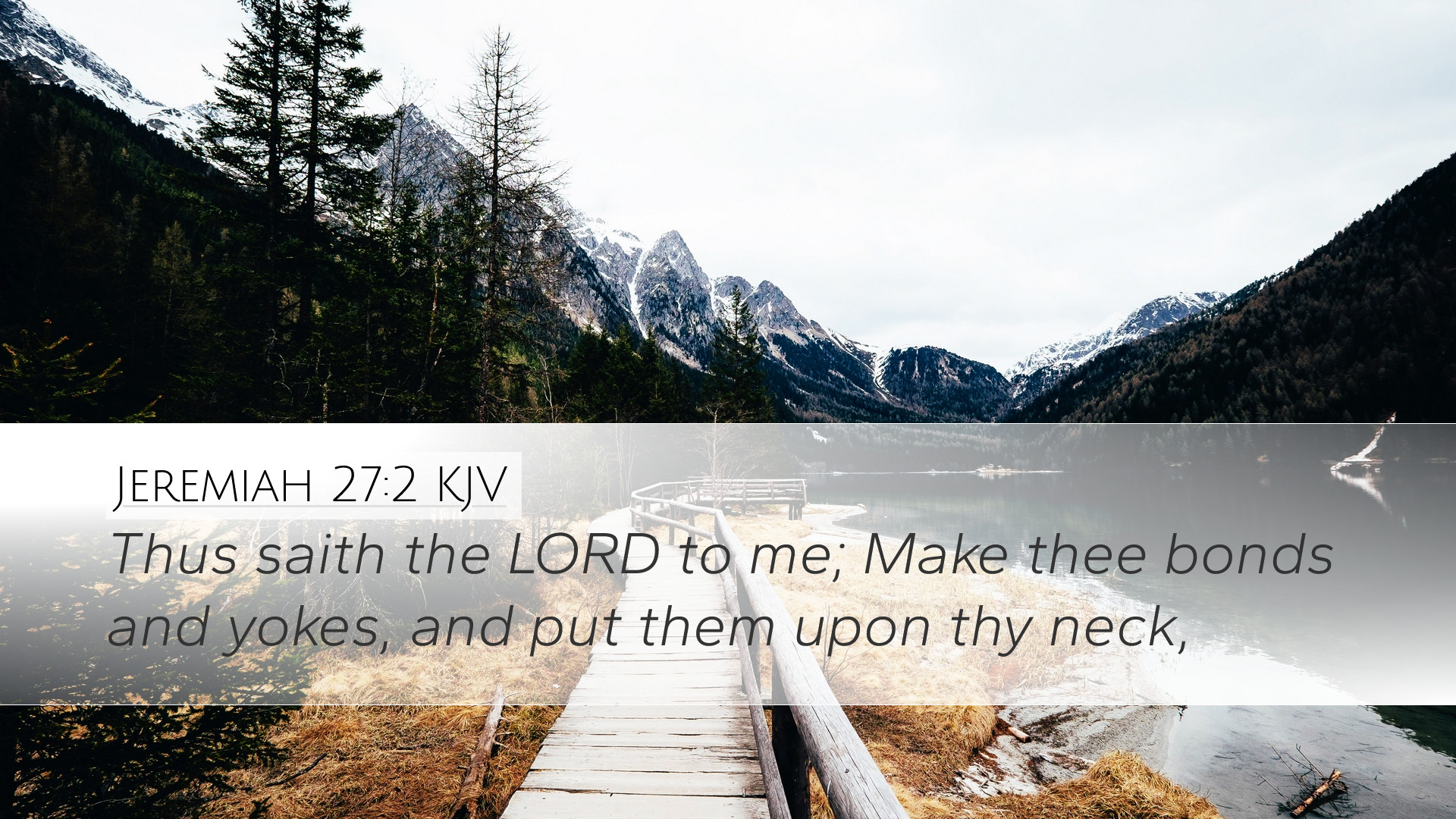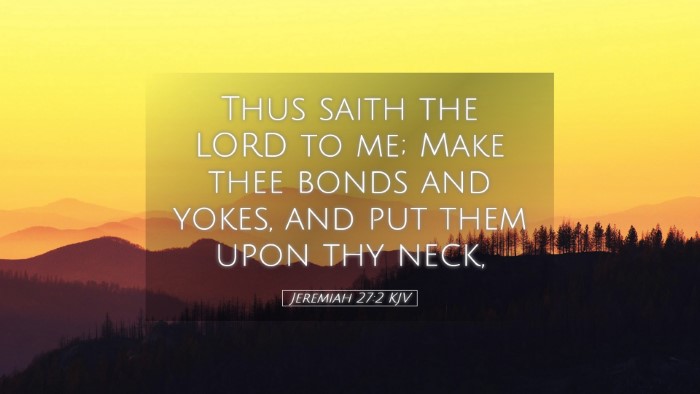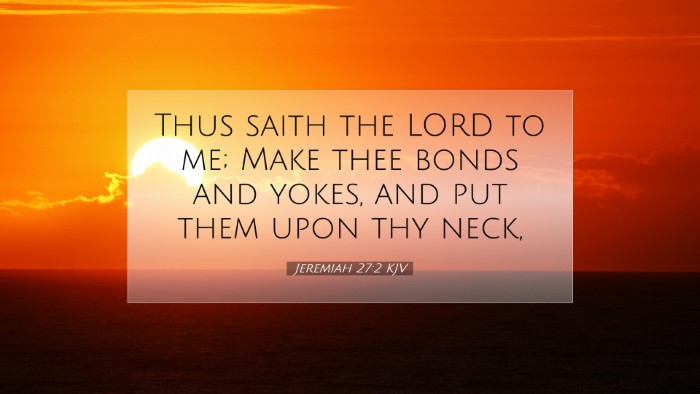Jeremiah 27:2 Commentary
Jeremiah 27:2 states: "Thus saith the LORD to me; Make thee bonds and yokes, and put them upon thy neck." This verse, part of a larger prophetic message, offers profound insights into God’s communication with His people and His sovereignty over nations.
Contextual Analysis
The historical backdrop of this verse is pivotal for understanding its meaning. At the time of Jeremiah's prophecy, the Kingdom of Judah was in a period of significant turmoil, facing threats from Babylon and other surrounding nations. The yoke symbolizes both physical and spiritual submission. It denotes servitude and the recognition of a sovereign authority.
Insights from Public Domain Commentaries
Matthew Henry's Commentary
Henry interprets the yoke as a metaphor for the Babylonian captivity and God's call for submission to Babylon's rule. He emphasizes that the bonds and yokes signify God’s will, reminding us that divine authority should be acknowledged even in distressing circumstances. Henry writes, "They were to submit to the yoke of Babylon, as the arm of God that was laid upon them for their disobedience."
Albert Barnes' Notes on the Bible
Barnes provides a complementary perspective, focusing on the symbolism of the yoke in relation to the nations. He asserts that the yoke represents the expected submission of the nations surrounding Judah to Babylon. Barnes notes, "The bonds and yokes are instruments of servitude that the Lord required Jeremiah to create and wear, signifying the inevitability of Babylon's dominance."
Adam Clarke's Commentary
Clarke delves into the practical implications of donning a physical yoke. He states that it serves as a visual aid for the people, reinforcing Jeremiah's role as a prophet. He asserts, "In this symbolic act, Jeremiah becomes a living illustration of submission to God's decree and the consequences of rebellion against Him."
Theological Implications
The use of a yoke carries profound theological implications regarding the themes of obedience, judgment, and God's sovereignty:
- Obedience to God: The yoke signifies the necessary obedience to God's plans, even when they are difficult to understand or accept. It calls believers to a posture of humility and submission.
- Judgment and Discipline: The yoke reflects the consequences of the people's sins – in this case, their disobedience to God led to their subjugation. This illustrates God's justice as well as His desire for His people to repent.
- Sovereignty of God: The imposition of a yoke also underscores the belief that God is ultimately in control of history. While earthly kingdoms may rise and fall, God's purpose prevails.
Application for Today’s Believer
This passage holds vital lessons for contemporary readers. It calls for self-reflection regarding personal submission to God's will:
- Embrace Divine Authority: Believers are encouraged to recognize and submit to God's authority in their lives, understanding that it is for their good.
- Understanding Consequences: Just like ancient Israel, modern Christians should be aware of the consequences of sin and strive to live in alignment with God's commandments to avoid discipline.
- Trust in God’s Plan: In times of trial or uncertainty, like the oppression faced by Judah, faithful followers are reminded to trust in God's overarching plan for their lives and the world.
Conclusion
Jeremiah 27:2 serves as a poignant reminder of the importance of submission to God’s will and the role of prophecy in guiding His people. Through the insights of esteemed commentators, we gain a deeper understanding of the complexities surrounding God’s directives, the significance of the yoke, and the lasting implications for believers throughout time.


